Juncker Left the EU Summit with an Empty Christmas Sack
Adelina Marini, January 7, 2015
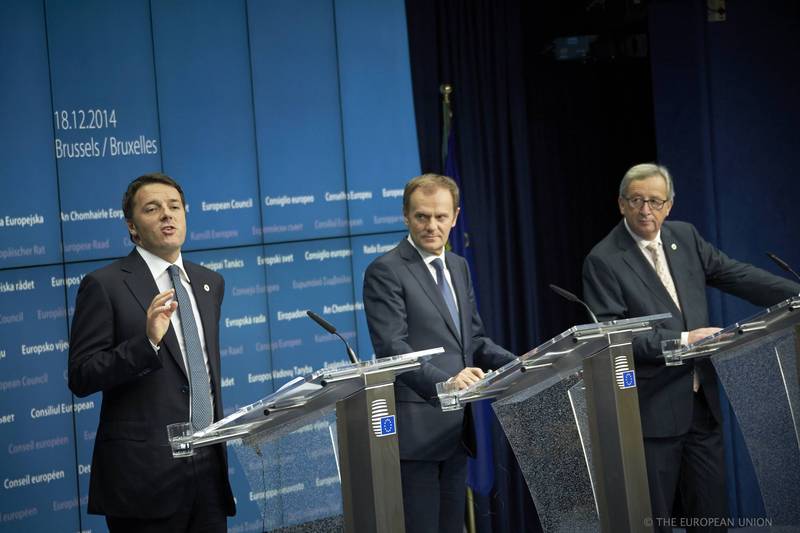 The traditional December EU summit set a record of the shortest one in history. It lasted only a few hours and ended with conclusions of only 2-3 pages. Usually, in end-December, the leaders of the member states gather together in Brussels to make a review of the past year and to set/confirm the guidelines for the next year. A very important element of the December European Council is also the message to the enlargement countries. That summit, as all the others, traditionally lasts two days and ends with solid conclusions of tens of pages. But not in 2014. All the important issues were dropped out of the agenda in the last moment and will be discussed later.The most attention in the final document received the Jean-Claude Juncker's investment plan, the European Commission chief but not to the extent Mr Juncker expected.
The traditional December EU summit set a record of the shortest one in history. It lasted only a few hours and ended with conclusions of only 2-3 pages. Usually, in end-December, the leaders of the member states gather together in Brussels to make a review of the past year and to set/confirm the guidelines for the next year. A very important element of the December European Council is also the message to the enlargement countries. That summit, as all the others, traditionally lasts two days and ends with solid conclusions of tens of pages. But not in 2014. All the important issues were dropped out of the agenda in the last moment and will be discussed later.The most attention in the final document received the Jean-Claude Juncker's investment plan, the European Commission chief but not to the extent Mr Juncker expected.
This was the first summit for the new European Council President Donald Tusk who has the ambition to make the brief format a tradition. The 18-19 December summit in Brussels, however, is not the brightest example of a brief but substantial summit, although all leaders welcomed the talks and described them as productive. Some doubts brings the fact the idea of a short summit emerged before the very beginning of the summit and later in the afternoon Donald Tusk made a video statement for the media making a brief review of the first part of the summit and announcing that it will not continue on the next day. It is possible the reason to be that the leaders of the 28 member states wanted to give Donald Tusk more time to settle in his new function as he took office on 1 December. This, however, is not very likely because Donald Tusk is very closely familiar with the summits because he participated in them as prime minister of Poland for 7 years.
He even turned his experience into mantra of the summit by stating many times, his team too, that he is the third most experienced member of the European Council after Angela Merkel and Jean-Claude Juncker who, though, had a different role being a president of the European Commission. Therefore, the reason should be sought elsewhere. In the Brussels corridors there was talk that the Italian prime minister, Matteo Renzi, insisted the summit to end earlier. He appeared at the final news conference a little before midnight and did not hide his joy with this. "This is the first time we will sleep at home and I'm really really happy, because the conclusion of the Council in only one afternoon and evening is a great news", he said visibly happy at the news conference which was broadcast live on Italian TV.
It is very likely Renzi to had insisted the summit to end quickly so that he could use it to underline the successful end of the Italian rotating presidency which is generally aimed at the domestic audience. But the deeper reason is that the leaders are divided on almost all the issues that were initially on the agenda - the funding of the investment plan, the future of the euro area, the relations with Russia, enlargement. That is why, only those issues found place in the final document which the consensus was the greatest on. Those were the investment plan as such and Ukraine.
A big step for Europe but a small one for Italy
The big event of 2014, undoubtedly, is the election of the new European Commission. And its major priority is the investment plan the purpose of which is to entirely change the model of investments in the EU, moving from subsidies and grants to investments, especially in risky and large-scale pan-European projects. According to the scheme, proposed by Jean-Claude Juncker, in the next three years, through the European Investment Bank (EIB), could be mobilised 315 billion euros of public and private investments which to finance strategic for the common European future, for the economic growth and for the employment projects. At the very beginning, Juncker warned that this is a small amount of money compared to the contribution of the member states if they decided to join in. The idea is an investment fund to be established which will initially be financed with reserves from the common European budget and EIB capital. Mr Juncker, however, insisted very much the member states to practically donor some of the money allocated to them in the multiannual financial framework for the period 2014-2020 in the fund and as a sweetener he offered them a favourable attitude toward their budget deficits and public debts.
Something which is accepted by some member states, but not by all of them. It is accepted, for instance, by Bulgaria whose Prime Minister Boyko Borissov told euinside that he is ready to donor to the future investment fund the money the country will not be able to absorb from the EU funds. Generally, however, the reception of the idea was quite cool on December 18. Juncker admitted that although the package was accepted overall well, no one called for its volume to be increased, which means that the member states did not respond to his call to participate in the fund with their own money. "We didn't have a detailed debate on national contributions because the project is not yet ripe. This will be the case in January or February, so we will come back to that matter then", Mr Juncker said. "Tonight was not a donors' conference", President Tusk snapped. Evidently, neither Juncker nor Tusk were happy but for different reasons. That unhappiness was very visible in the introductory remarks by the 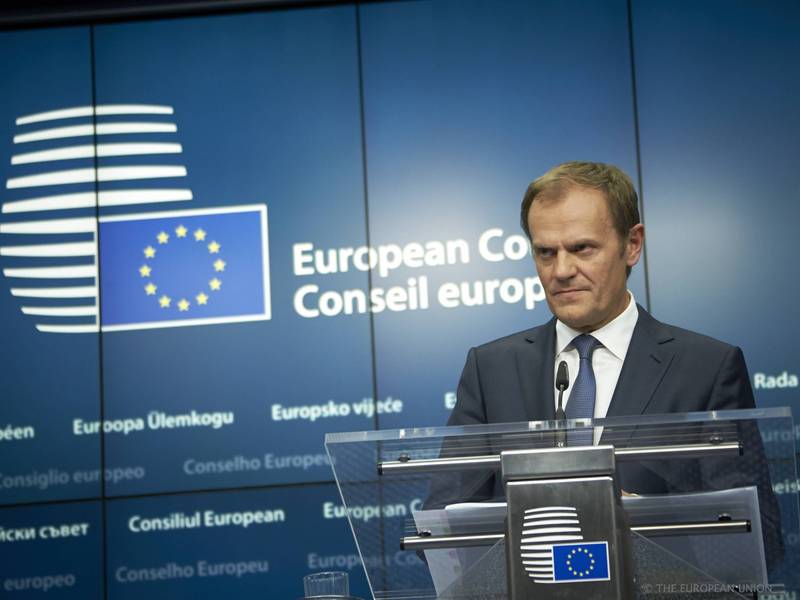 veteran EU politician Juncker who started with the words that Donald Tusk had indeed improved his English, as he promised, "But I'm a francophone, I'll continue in French".
veteran EU politician Juncker who started with the words that Donald Tusk had indeed improved his English, as he promised, "But I'm a francophone, I'll continue in French".
The differences between the three at the press conference were obvious. To Tusk the most important issue was Russia and Ukraine. To Juncker that was the investment plan and to the Italian prime minister that was his personal victory - in the final text to be inserted the word "flexibility". Regarding the national contributions and their impact on the public finances of the member states, the text says: "The EFSI will be open to contributions from Member States, directly or through national promotional banks. The European Council takes note of the favourable position the Commission has indicated toward such capital contributions in the context of the assessment of public finances under the Stability and Growth Pact, necessarily in line with the flexibility that is built into its existing rules".
This was a real victory to Renzi. According to him, the past six months marked a new season for Europe. "First of all, growth and not only austerity. The legacy of the Italian presidency is first growth, growth, growth", he said. The second big victory is that politics has returned in the EU. "Not only bureaucracy. Politicians, not only technocrats. This is the second reason of legacy of the Italian Presidency". Currently, the debate about the economy is very important because Europe should finally decide to pay more attention on growth because the pact is not just about stability but also about growth, the Italian premier continued. The question is, however, to what extent Matteo Renzi's views about flexibility overlap with the views of Juncker's Commission and with Germany's positions. The summit made it clear that Jean-Claude Juncker supports more flexibility.
He rejected the claims that his proposal the countries that make contributions to the investment fund to receive a softer attitude if they are violating the fiscal rules is in violation of the Pact. The Commission's proposal is to neutralise the national contributions to the fund. All this is based on specific provisions in the Pact, Juncker claims. "Now, I'm probably one of the people who knows the SGP best. I was one of the architects of it. Not to say the victim sometimes. So, when we talk about neutralising I'm referring to a specific provision in the SGP. The Commission's proposal has to be in line with the SGP", the Commission chief underscored. Matteo Renzi said that he is completely happy with the text in the conclusions. Some people wanted the word "flexibility" to be dropped out. "Small step forward for Italy, big step for Europe", Renzi said paraphrasing Neil Armstrong's famous remark during his landing on the Moon: "A small step for a man, a giant leap for mankind".
And if the text of the conclusions is a victory for Renzi and the Italian presidency, it is a bad news for Juncker and his investment plan. The conclusions state that the investment fund will be additional to the existing EU programmes and the EIB's traditional activities. In this regard, a strong appeal is sent the member states to use to the maximum the EU funds. Moreover, the leaders tasked the Commission to help the member states to take the best possible use of the money from the previous financial framework (2007-2013). This is to some extent a good news for countries like Bulgaria that want a one-year extension of the deadline for absorption of the money from the previous budget. The leaders, however, leave the door open for those countries that want to contribute to the fund for long-term projects to take the best use of the existing flexibility of the fiscal rules. This is precisely what Matteo Renzi wants.
The fate of the investment plan is still not clear despite the cool reception on 18 December. The leaders will have a final say after the Commission presents its detailed proposal which will happen this month. This plan will be one of the issues of 2015 not only because the EU is suffering of a lack of investments but also because the plan requires moving toward a brand new level of European integration. The seven-year EU budget is viewed as an investment instrument but it is directed mainly to economic convergence among the member states and in this capacity it has not proved very successful. Juncker's investment plan is directed toward attracting public and private investments in common European projects of strategic importance that could take the EU out of the current crisis. Those are in 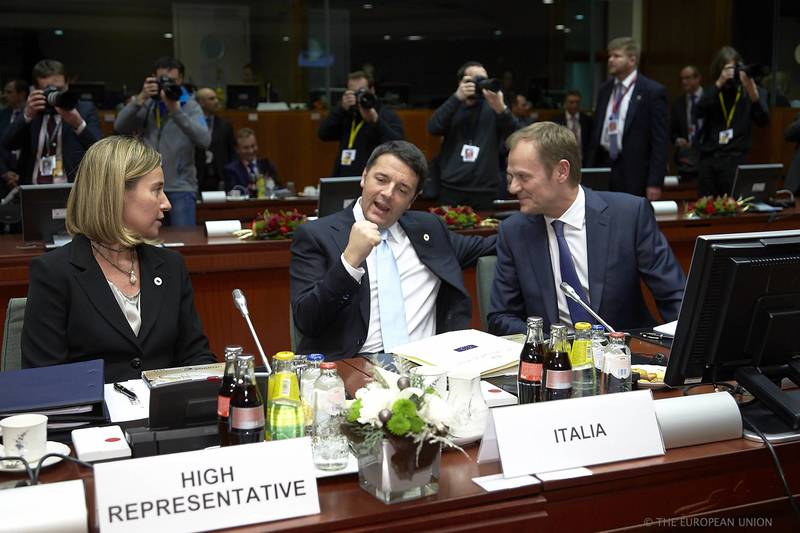 broadband Internet, energy independence, infrastructure connectivity, digital economy - all of them areas in which EU is decades behind.
broadband Internet, energy independence, infrastructure connectivity, digital economy - all of them areas in which EU is decades behind.
There is no country in the EU that has absorbed 100% of the EU funds, so what is needed is political will. For now it seems that the most indebted countries are most favourably inclined to support the plan because of the sweetener Juncker is offering. The former prime minister of Luxembourg is ready for a big fight for this plan. His deputy who is responsible for the plan, Jyrki Katainen, has started a tour of the member states to promote the plan. The former prime minster of Finland will not discuss it only with governments because they are already familiar with it but in national parliaments, with business organisations, the non-governmental sector. In other words, the Commission will seek support deeper at national level - from the bottom up. This is a smart move which affirms Jean-Claude Juncker's ambition to turn the Commission into a political body.
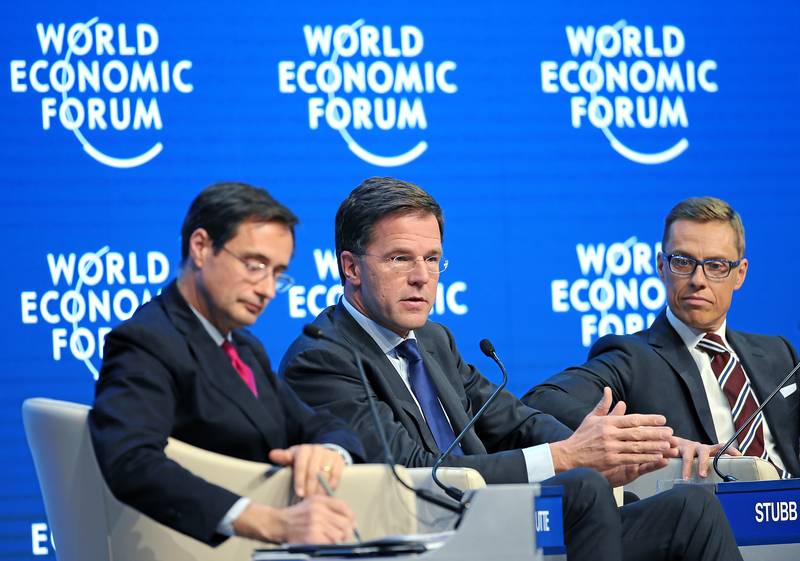 Mark Rutte, Alexander Stubb | © WEF
Mark Rutte, Alexander Stubb | © WEF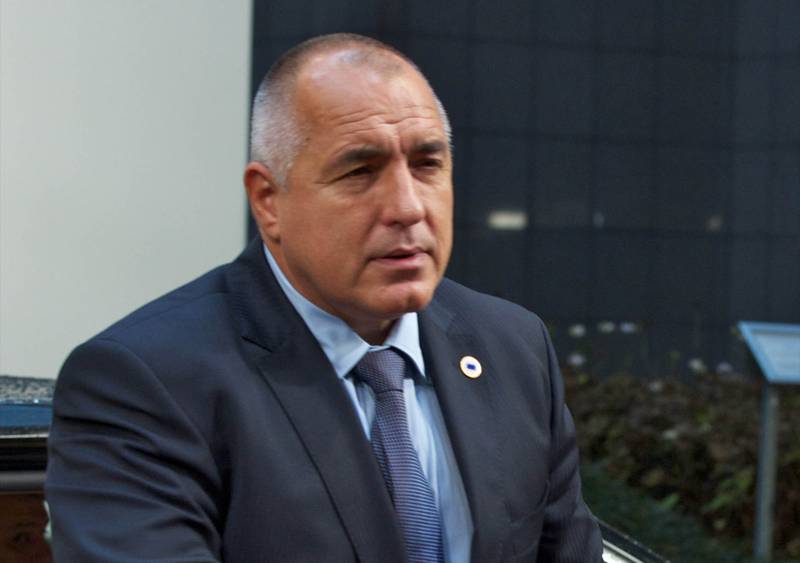 Boyko Borisov | © Council of the EU
Boyko Borisov | © Council of the EU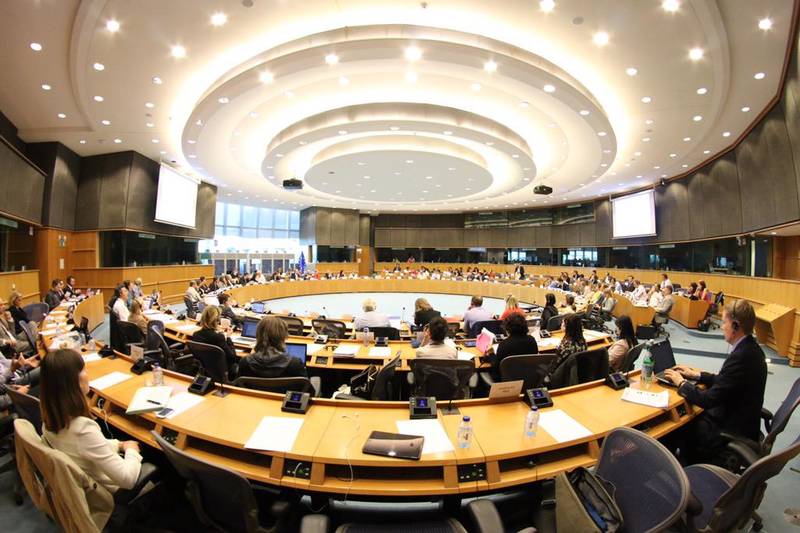 | © European Commission
| © European Commission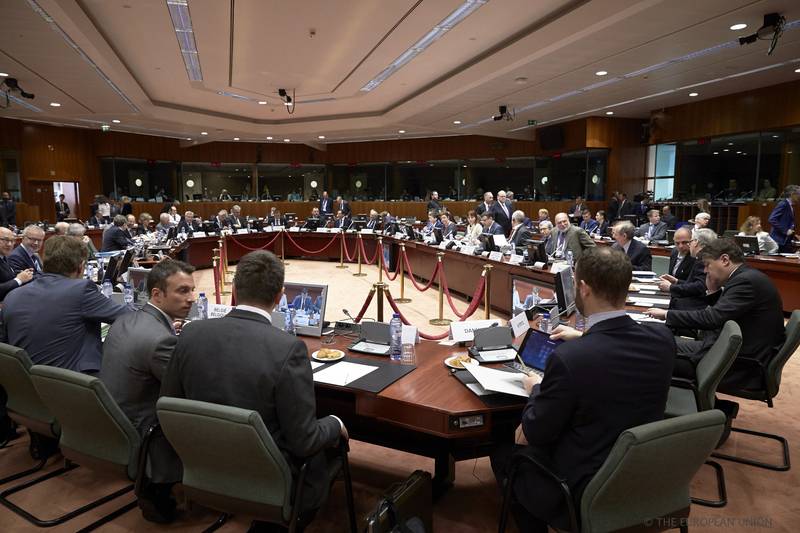 | © Council of the EU
| © Council of the EU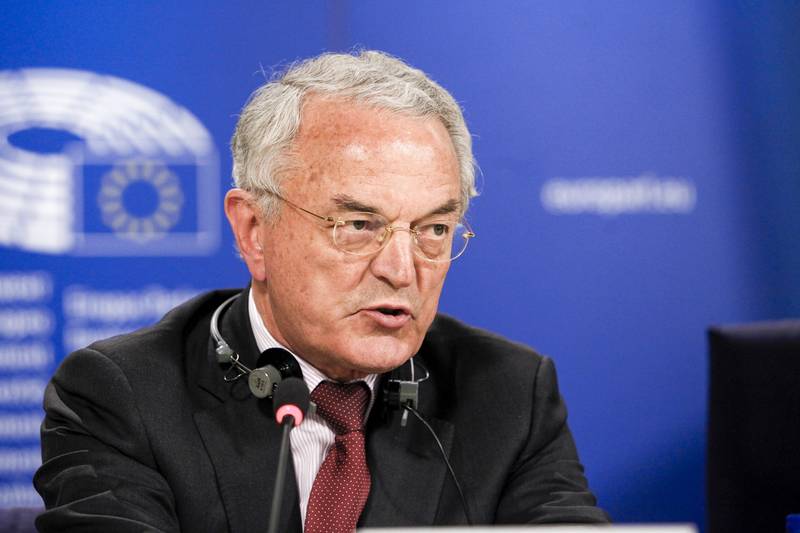 Jean Arthuis | © European Parliament
Jean Arthuis | © European Parliament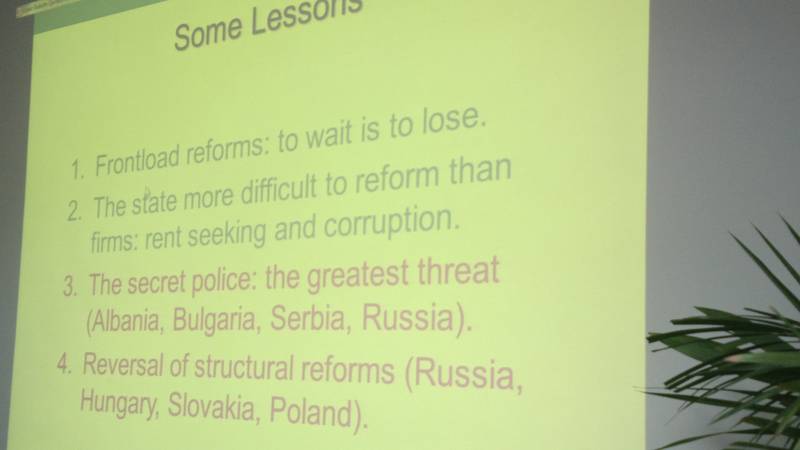 | © euinside
| © euinside